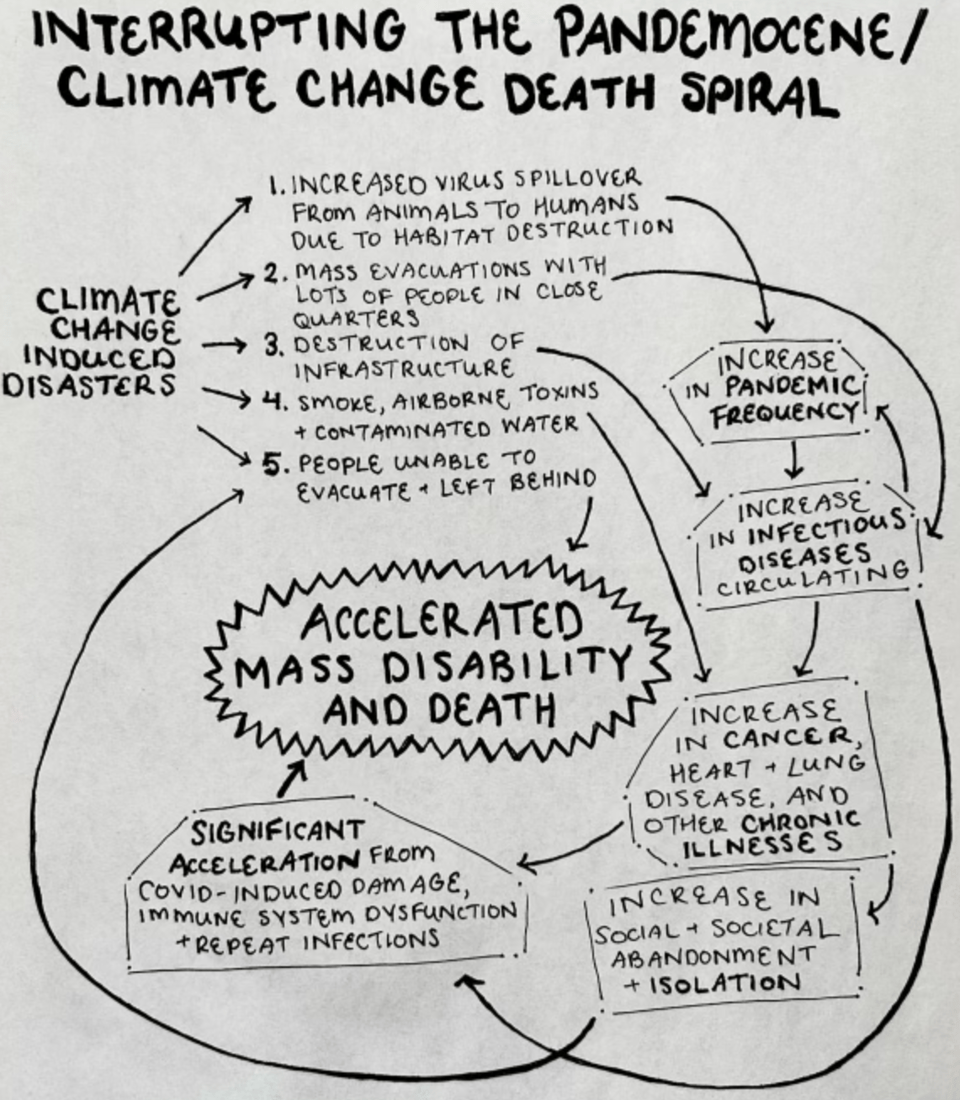a lone flame in the hinterland: from Hermit to Exile
a lone flame in the hinterland: from Hermit to Exile
if you have disposable income, please send your extra coin to one or some of the funds listed in the Displaced Black Families GoFundMe Directory for those affected by the Eaton Fire in Pasadena & Altadena.
we entered a new year, and much of Los Angeles burned throughout January. people -- many of whom are working class and Black and brown -- fled the wreckage, becoming climate refugees in an instant. sacred spaces that were the site of innumerable precious memories across generations went up in smoke. the city, who shrank the fire department's coffers and padded the police department's budget, made requests of the local mask bloc for high-filtration masks though the mayor contemplated a mask ban just last summer. this same mayor, visiting Ghana for whatever reason while the wildfires spread, sat silent in the face of pointed questions about her absence and incompetence before she was whisked away by police escort. incarcerated people put out the fires for dollars a day while the state deployed the Sheriff’s department and the National Guard under the guise of crisis response to assuage overstated fears of looting — a time-proven farce of classism and anti-Blackness in the time of disaster.
now:
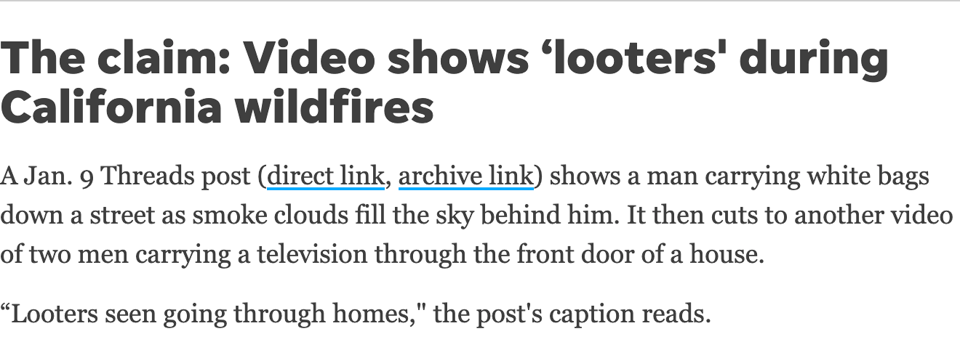

then:
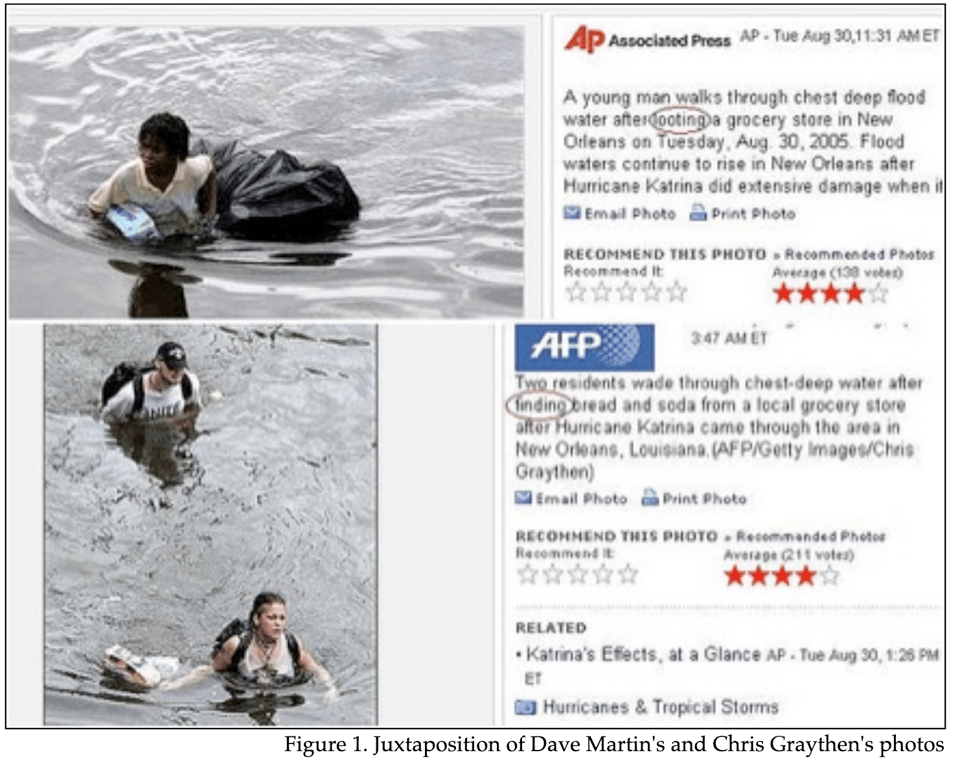
yes, Octavia Butler, both studious and oracular, predicted fires in Altadena in her well-renowned novel Parable of the Sower. but to what end do we acknowledge this? i think back to Parable of the Sower day (July 20th) last year, how i joined a group of folks gathering at yes please bookhouse to craft mini go-bags together, discuss how we might prepare for emergencies, then marinate on the wisdom contained in Butler’s novel through discussing such questions as have you stopped pretending? what version of yourself belongs only to you? do you find comfort or distress in the process of learning? do you trust your ability to learn something new little by little, bit by bit?
The most salient lesson from “Sower,” for me—and one that runs throughout Butler’s work—is about the innovation and adaptation required to survive the unsurvivable…
There’s a famous Butler quote that surfaces often: “There’s no single answer that will solve all of our future problems. There’s no magic bullet. Instead there are thousands of answers, at least. You can be one of them if you choose to be.”
…After Butler delivers a talk, a student asks her if she believes that in the future there will be the kind of troubles she wrote about in “Parable of the Sower.” Butler replies that she didn’t invent the problems; she just observed the problems that already existed and saw that they were being neglected. The student then asks her for a solution, and Butler says that there isn’t one. “You mean we’re just doomed?” the student asks.
When Butler retells the story, she mentions that the student said this while smiling, as if he believed it to be a joke.
— Hanif Abdurraqib, “Lessons for the End of the World”
i think then about what comes after this exchange, how the student intentionally truncates Butler’s meaning in a report he published, omitting her acknowledgememt of the multitude of answers at our disposal and trapping her words in misrepresented defeatism. similarly, we must not acquiesce to the reduction of our imaginations, whether imposed or self-directed. we must not shrink our capability to hold onto the knowledge that we inherit, whether it comes from spirit or from simply paying attention. we have a responsibility to not foreclose our learning by finding only One Big Thing in the temporal alignment of fires written then experienced. we should ask bigger questions of what Parable’s protagonist demonstrated in her traveling, dreaming, and documenting. only then can we locate our own responsibilities in a world that burns.
Lauren (from yes please, not Parable) crafted the questions i mentioned above for our collective discussion, and have you stopped pretending? brings to mind a quote that i’ve heard often: "What are you pretending not to know today?" from Toni Cade Bambara’s "The Education of a Storyteller." these words were not her own (as I assumed prior to reading the text) but asked of her by a loving elder who she regarded as a grandmother. her elder was looking for the blues, the rhythm, the folktale, the freedom in the information a young Bambara wanted to pass along about Einstein’s theory of relativity. Miz D’s line of questioning, culminating in the oft-quoted inquiry, underscores the importance of Black storytelling and the invaluable knowledge it contains. strengthening our capacity to remember, and therefore to be honest about our conditions, will serve us best within our efforts to survive.
a few months ago, my homie hiré said "amnesia will be the demand of the decade," likely about the collective impulse to disremember all the death and disablement that COVID-19 has wrought, but this sentiment applies to more than the viral threat we live under. the same can be said of the Democratic party’s encouragement during campaign season to sidestep the Biden administration’s full-throated (and full-pocketed) support of israel’s genocidal regime. and now the ceasefire deal, reached in the final days of his presidency, has been beset by contradictions and violations because of course. the yet-untoppled Zionist occupation will do as it desires: continuing its atrocities from the river to the sea while intentionally intensifying its besiegement efforts onto the West Bank. not to mention that the newly-seated Trump administration has been bending over backwards to strip provisions for and erase the existence of the oppressed — trans people, racially-marginalized people, undocumented people, disabled people — both in word and in deed.
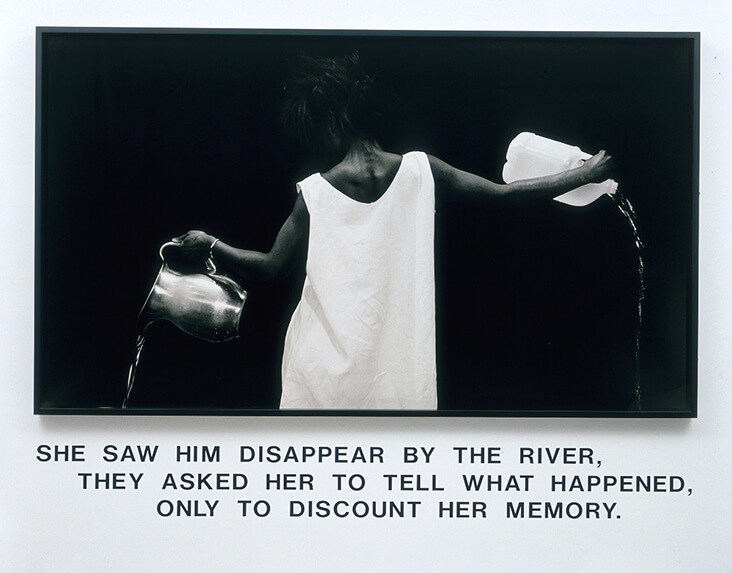
where Lorna Simpson’s Waterbearer calls, the poetic corollary of Lucille Clifton’s “why some people be mad at me sometimes” responds:
they ask me to remember
but they want me to remember
their memories
and i keep on remembering
mine.
Chinyere Erondu (re)cited this very same poem in the workshop she facilitated recently, wherein she stressed the timely imperative of memory-keeping. with fascism asserting its stronghold, we will be asked to forget, to shorten our memories, to abandon the lessons we have learned in service of upholding a facade of normalcy that benefits only the ruling class. we will be asked to turn away from knowledge-seeking altogether, as the rapid proliferation of artificial intelligence widens gaps in literacy, critical thought, and security culture while simultaneously drying up water sources and exploiting workers on the African continent.
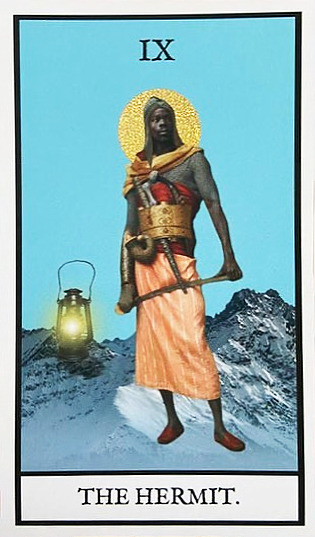
through a feat of simple numerology, tarot dictates that this calendar year belongs to the Hermit, card number nine in the Major Arcana (2+0+2+5). usually illustrated carrying a lantern at the summit of a remote snowy peak, they are a sage practitioner of retreating inward to rely on the knowledge both bestowed and accumulated. the journey to reach such a place is likely beset by untold difficulty, for it is no small feat to know the contours of our most intimate selves or how they may shape around our external environments. Jeida K. Storey, a diviner from whom I regularly learn, themed 2025 as the year of regarding the Self as Source. doing so is not an entreaty to rely on individualism, echo chambers, or silos, she explains.
“We have to start regarding what we feel internally, what our intuition is telling us about the time that we’re in. Regarding the self as Source means that we are returning to intimate relationship with [ourselves]… it means we’re going back to listening to our ancestors and really trusting that we know, or rather, we’re remembering our way through what’s affecting us up ahead.”
in other words, this is the year of resisting the decade’s demand of amnesia through careful assessment and ancestral (re-)alignment. before self-trust comes honesty. what are you pretending not to know, dear reader? what have you not yet seen in the mirrors your immediate surroundings and chosen communities have turned towards you? what have the/your dead given you, and will you accept the offering or burrow further into denial?
The Hermit is empowered to choose their retreat into solitude, but what about when the retreat is done under duress, when stewarding the knowledge draws a larger target on your back? solitude isn't solitude when it is coerced or forced. when consent is absent, it becomes isolation. and when the isolation persists, it become exile. here, we revisit tarot as an allegory for the wake.
The Hermit and The Exile share common ground, but the latter, firmly on the Fugitive's Journey, is not promised home or return. The Exile has been shunned for what they remember, for what they know, for what they predicted. The Exile's light illuminates the failures of the individuals and institutions that pushed them out in the first place. through practicing a revolutionary refusal of pretense, The Exile holds the line and turns their back on imperial overlords, false idols (read: celebrities and capital), fascists, and liberals alike who all do each other’s bidding.
"We are expected to discard, discount, disregard, jettison, abandon, and measure those ways of knowing and to enact epistemic violence that we know to be violence against others and ourselves."
Christina Sharpe, In The Wake (pages 12-13)
already having been victimized and ostracized, The Exile cannot afford to perpetuate the kind of ableist and anti-Black violence they’ve been subject to. they know better so they do better, serving as a model to the masses. unfortunately, the masses are more readily poised to close their ears to the song of the canary in the coal mine. to embody The Exile on the Fugitive’s Journey is to understand yourself as a vigilant island in a vast and unwell archipelago, fortified yet still vulnerable. it is to be the sole lit peak, a lone flame in the hinterland. The Exile takes the high ground not as a form of smug moral grandstanding, but because it actually is what’s right, plain and simple. after all, when has path of least resistance gotten anyone free?
in the more common understanding of the word “exile,” we can turn to Assata Shakur and Nehanda Abiodun as two examples. individuals who, in their uncompromising quests for liberation, had to abscond to Cuba to avoid the deathmaking of the “u.s.” empire. there, they became sisters in struggle until — and likely beyond — Abiodun’s physical death. in “The Education of a Storyteller,” Toni Cade Bambara writes of another exile: “Claudia Jones, organizer from Trinidad who was deported during the Crackdown, when the national line shifted from ‘blacks as inferior’ to ‘blacks as subversive’ and wound up in a stone quarry prison and wrote ‘In every bit as hard as they hit me.’” Miriam Makeba also enters the frame, pushed out of South Africa for her unshakeable opposition to apartheid.
but if we expansively consider the emergence of a present-day Exile — beyond the international prison break or forced flight of decades past — we land among the overlapping communities of Black disabled / immunocompromised / sick / bed-bound people, all exiled from participating in life fully by the unmasked masses as several viruses threaten collective health. we embrace the Black mad / mad Black people, attuned to the truths of their ungovernable bodyminds in a world that lies about how maddening it is. we also encounter Black survivors of violence or abuse, disbelieved and deprived of support, especially when they speak about what happened to them. The Exile tells the truth to shame the devil, only for most of the world to turn and become devil’s advocate.
the aspect of wake work that this figure presents is the duty of challenging the routine abandonment of Black disabled people and the denigration of Black disabled wisdom in a society where “Black deaths are produced as normative” (Sharpe, 7). what have we to learn from those who are pushed out? who have no choice but to smuggle themselves away alone? who may remain ensconced in obscurity until their dying day?
Those of us who want to get free but have been thoroughly exiled from society understand how passionately a white supremacist world wants us to disappear. Eugenicist normalcy sees us as walking gravestones en route to already forgotten cemeteries. Wherever we speak against the lies and falsehoods people swaddle themselves in we are ridiculed and pushed further into isolation.
— Estelle Ellison, “Causes of Exile”
over recent years, i’ve seen many highlight how drapetomania was a diagnosis created to pathologize the enslaved’s desire to flee captivity. fewer have extended this understanding to the growing likelihood of carceral and psychiatric incarceration for Black COVID-vigilant people who desire to mask as protection against COVID (because our rightful aversion of death and disablement and our impulses towards care are interpreted as "crazy") as well as surveillance. Imani Barbarin is one of the fewer, who once connected the faux-diagnosis of “excited delirium”; medicalized police killings of Black disabled people like Demetrio Jackson and Elijah McClain; and the criminalization of masks.
The Exile is far-removed from home (as a concept or place), and they must get creative in their locale to attempt towards some semblance of belonging. from up on high, The Exile sees the lay of the land and in turn becomes more dexterous at navigating defamiliarized and/or violent terrain. i think of Nehanda Abiodun who channeled her energy into cultivating Havana’s hip-hop scene, or Claudia Jones who went on to launch the West Indian Gazette and Notting Hill Carnival a few years after her arrival in the UK. and of course, there is the everyday artfulness and improvisation of Exiles who must adapt to imminent apocalypse, through devising hacks to make one’s living space more accessible or weighing the balance between forced intimacy and access intimacy to arrive at the beginning of another day (and hopefully closer to interdependence).
Fascism paves its own future with billions of compromises that will see you making peace with the very antithesis to liberation. Overcoming a fear of being exiled is absolutely essential if we are to make an empowered stand against the many forms of oppression that structure daily life. In the fiction that covid denialists occupy they anticipate and push for our breaking points where we might become as complicit as they are in continuing this ongoing pandemic. But in our exile we have not become severed from reality. The circumstances that necessitate our precautions have not disappeared, so we remain in the margins of society as stubborn reminders of the futility of believing a period of genocide and mass disablement will not affect you."
— Estelle Ellison, “Causes of Exile” (emphasis mine)
there are no quick or universal solutions to isolation, nor is there anything to romanticize about being left behind or pushed into oblivion. what remains in the gap are opportunities for “compassionate coordination” (Ellison) across our varying needs and desires (pandemic precautions, mutual aid, flexible care infrastructures, inclusive disaster response, etc.), the call of Spirit in our loneliest moments, and distant linkages to other Exiles. overcoming the fear of being exiled starts first with acknowledging that none of us are immune to disablement or displacement, and certainly not d/Death. then, it continues with acting accordingly.
memory work and remembrance rituals done at the margins are not to be swayed by the whims of those who occupy the center. “We understand the compulsions of capital in our always possible deaths. But those bodies nevertheless try to exceed those compulsions of capital” (Sharpe, 71). do you dare to defy imperialist and eugenicist norms and be a living record of where/who/what we come from and where/who/what we have lost? if so, do what you must to be a reliable source of knowing in a vortex of mis- and disinformation. make your peace with the fact that the principled choice is often the unpopular one, and carry on regardless. while stoking their flame, The Exile bears the water, sparing no drop because accessing more is not promised when facing down a world on fire. this water is memory, is Spirit, is life itself. The Exile may not keep memory pristine (our minds cannot even do that), but they can defend it in service of being able to make more memories when the dawn finally comes.
until next time,
Dkéama
note
i am writing of exiles who are isolated for making principled choices in a world that wants them dead, not people who have been shunned or left alone because of the dangerous and/or abusive decisions they’ve made. the latter can choke for all i fucking care.
references
Hanif Abdurraqib, “Lessons for the End of the World”
Al Jazeera, “Israel deploys tanks as assault on occupied West Bank intensifies”
Al Jazeera, “Why incarcerated workers play a key role in fighting California’s fires”
Associated Press, “Octavia Butler Imagined LA Ravaged by Fires. Her Altadena Cemetery Survived”
Toni Cade Bambara, “The Education of a Storyteller”
Imani Barbarin, video from her Instagram @crutches_and_spice
David Berreby, “As Use of A.I. Soars, So Does the Energy and Water It Requires”
Octavia Butler, “A Few Rules For Predicting The Future”
Lucille Clifton, “why some people be mad at me sometimes”
Disaster Strategies, the only U.S. disability-led organization with a focused mission of equity for people with disabilities and people with access and functional needs throughout all planning, programs, services and procedures before, during and after disasters and emergencies.
Estelle Ellison, “Causes of Exile”
Marjua Estevez, “Beautiful Struggle: The Iconicity of Cuban Hip-Hop And Political Exile Nehanda Abiodun”
Mark Guarino, “Misleading reports of lawlessness after Katrina worsened crisis, officials say”
Julia Ingram, “A month before fires, L.A. fire chief warned budget cuts were hampering emergency response”
Joedy McCreary, “Viral video shows men helping woman flee California wildfires, not 'looters' | Fact check”
Nicola Mann and Victoria Pass, “Introduction: The Cultural Visualization of Hurricane Katrina”
Mia Mingus, “Access Intimacy, Interdependence and Disability Justice”
Mia Mingus, “Forced Intimacy: An Ableist Norm”
Billy Perrigo, “OpenAI Used Kenyan Workers on Less Than $2 Per Hour to Make ChatGPT Less Toxic”
Christina Sharpe, In the Wake
Lorna Simpson, “Waterbearer”
Sky News, “Los Angeles mayor silent when asked if she owes citizens apology over handling of wildfires”
Jeida K. Storey, video from her instagram @jeidakstorey
post-script
HOW TO GET ON - A self-advocacy guide for anyone who is homebound or bedbound in the US. Special focus on folks with Myalgic Encephalomyelitis (sometimes called “Chronic Fatigue Syndrome”).
Masking through Blackness: This zine aims to be a conversational guide, toolkit and love letter for Black people that mask and take COVID/virus precautions. We face unique issues including difficulty with mask fitting, (hair)styling and access to resources. These topics are discussed with other Black people but are not easily found in mainstream COVID resources. This zine centers info sharing in a more accessible, sharable way.
Disabled Black Slaves and "Free Labor": Towards a More Comprehensive Disability Justice by g
No “End” In Sight: On Cultivating Conflict With a World of Pandemics by anonymous
Insurrectionary Mutual Aid Zine by Curious George Brigade
Interrupting the Pandemocene/Climate Change Death Spiral (image by @slightlypersimmon on IG)
